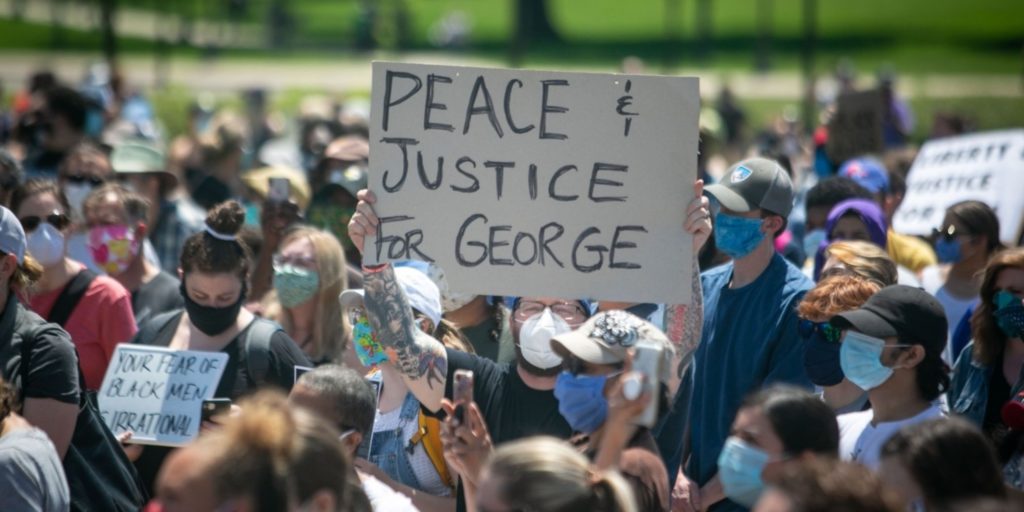
“Thousands of protesters gather at the Minnesota State Capitol on Sunday to demand justice for George Floydional Guard troops secured the perimeter of the Capitol building.” (Jason Armond / Los Angeles Times)
How can Circles USA adequately respond to racism? Let’s be in community together to listen to each other and support our way forward. Please join me on Wednesday, June 3 at 1pm Pacific, 2pm Mountain, 3pm Central, 4pm Eastern. Email gena@circlesusa.org for the Zoom Meeting ID and password. In the meantime, here are some of my reflections:
Changing the mindset: At Circles, we believe that human beings can eradicate the conditions of poverty. The challenge is not about finding enough resources or figuring out what systems to change, but aligning the conviction: “We can and should end poverty!” Let’s bring this same bold energy to encourage ourselves and our communities that we can make a difference in addressing racism.
Understanding this present moment: A recurring question during meetings with our board, staff, and partners: “What are you seeing/hearing/noticing about COVID-19 in relation to current trends for poverty reduction?” This week, we’ll reflect on the recent protests and social unrest. Your perspective is invited too: here’s more about our story-collection process. Gaining clarity about this present moment will inform the organization’s strategic planning, ensuring we can be nimble enough to respond to what’s most pressing.
Addressing inequity: In U.S. history, we have been managing the symptoms of poverty but not treating the cause. Circles Chapters advance necessary systemic change through the “Big View” committee and monthly meeting. Soon, Circles USA will release a policy platform with local and national recommendations on six key issues: quality jobs, cliff effect, broadband access, healthcare, housing, and transportation. We can use a lens of race equity in each Big View issue; as we design policy solutions, we can compensate for structural biases that make marginalized communities most vulnerable.
Voting: Circles USA has been organizing a non-partisan Civic Participation Campaign to promote voter education and voter turnout. The campaign launched with a webinar, Civic Engagement 101. On June 17, our webinar about a “candidates’ forum” will teach Chapters how to share community stories with those in a position to make change. Your voice and your vote matters.
Considering privilege: Circles USA recently upgraded training for volunteers to be more responsive to the complex context of poverty with new material on structural racism. Understanding my own privilege, as a white person, has been important to my social-justice journey. There are so many great resources, such as Robin DiAngelo’s White Fragility: Why It’s So Hard For White People To Talk About Racism and Layla Saad’s Me and White Supremacy: Combat Racism, Change the World, and Become a Good Ancestor.
Reaching out: Our friends, family, neighbors, and colleagues who are Black/African-American are experiencing a lot of trauma this week. Let’s not feel so daunted by injustice that we forget to ask those around us, “How can I best support you right now?” Building relationships across lines of difference is the heart of the Circles model. In a time of such intense polarization, let’s invest in relationships.
Many thanks to our Circles Chapters for continuing to build such thriving communities. I’m looking forward to our upcoming community conversation.
~Jamie Haft, Executive Director, Circles USA

